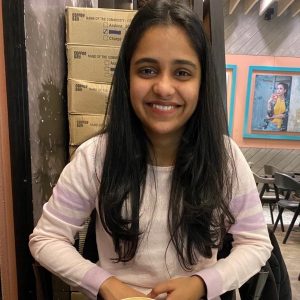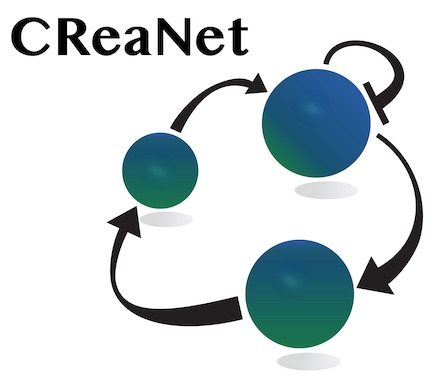
1. Please tell us a little about yourself. Where are you from and what is your research background?
My name is Charu Sharma, and I am from the capital of India, Delhi. After completing my high school studies, I pursued Bachelor in Chemistry at Hindu College, University of Delhi. This was the golden period when I fell in love with the subject and realized that I wanted to continue with Chemistry. After cracking a competitive exam, I got an opportunity to carry out my Master’s studies at the Indian Institute of Technology, Delhi. During my Master’s thesis under the supervision of Prof. Nidhi Jain, I worked on developing novel strategies to prepare drug molecules employing Photoredox Catalysis. While dealing with such a challenging project, I developed a profound interest in research. I knew this was what I wanted to do in the future.
2. Tell us briefly about the research project you have been doing as a Marie Curie Fellow?
Here in Walther Lab at the University of Mainz, I am working on developing transient and self-regulating materials inspired by biological systems. The project focuses on integrating soft colloidal particles within chemical reaction networks to achieve highly programmable and autonomously assembling systems.
3. Why did you choose to apply for this particular project?
I was looking for an interdisciplinary project where I could use my organic chemistry skills. I came across this European Training Network (ETN) which not only offers a position in one of the best laboratories but also training, exposure, and networking with the great scientists of the field and fellow early-stage researchers.
4. As a reasercher, which goals and ambitions do you have for your future career?
I love being a part of the academic world and aspire to continue research and set up a research lab of my own. I also want to take up teaching and lab courses and follow my passion for teaching.
5. Who is your favorite scientist?
It may sound a bit of a cliché, but I admire Prof. Richard Feynman because of his scientific achievements and the way he used to teach and communicate his findings. Currently, I am following Prof Khalid Salaita’s work. Out of other aspects, they are working on developing synthetic motors that mimic molecular proteins found in cells which I find pretty incredible.
6. What was your first impression when you arrived in your host country?
Honestly, I was a bit scared initially because I did not know the language and found the culture quite different from my native country. However, everything was well-organized, and with the help of amazing people at work, I quickly adapted to changes. Now, it feels like a second home.
7. Why is your project important for society?
Most living organisms operate under time-regulated functions-heart pumps blood with rhythmic pacemaker activity, and metabolism is synchronized with the night and day cycle. Numerous interwoven chemical reactions networks run these oscillations. Inspired by such systems, we are trying to develop new generation materials with autonomous dynamics and self-regulatory control.
8. Marie Curie fellowship requires a lot of travels, why mobility is important for research?
Communication and collaboration are two important aspects of pursuing research. Mobility ensures that you achieve both. It offers the necessary scientific visibility and recognition among the community. Above all, it allows us to share skills, ideas and learn from others which ultimately helps science grow. COVID restricted travel significantly, but ETN, fortunately, managed to organize all the workshops and events online.
9. How did you find your passion for chemistry?
I must credit my high school teacher for making Chemistry so much fun to learn. I still remember this organic reaction at which I failed two times in my Bachelor’s lab course, and then my Professor helped me figure out what was wrong, and I troubleshoot the problem and make a very fine product. I found the process very fascinating and decided to continue and learn more.
10. Do you have any advice for other young researchers who are considering applying for a Marie Curie fellowship?
Please do it! Being a Marie Curie fellow, I can affirm that this is one of the best Ph.D. programs one can apply for. It provides the necessary training, helps you gain scientific visibility, and on top of that offers one of the best working environments in Europe to nurture your research endeavors.
